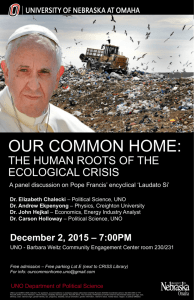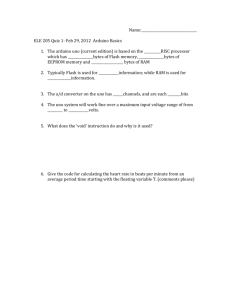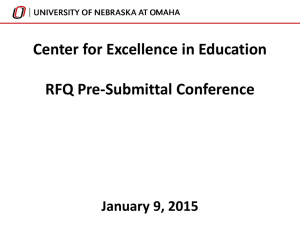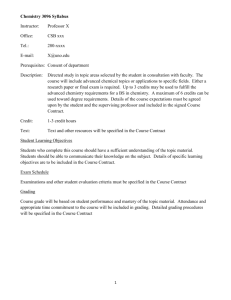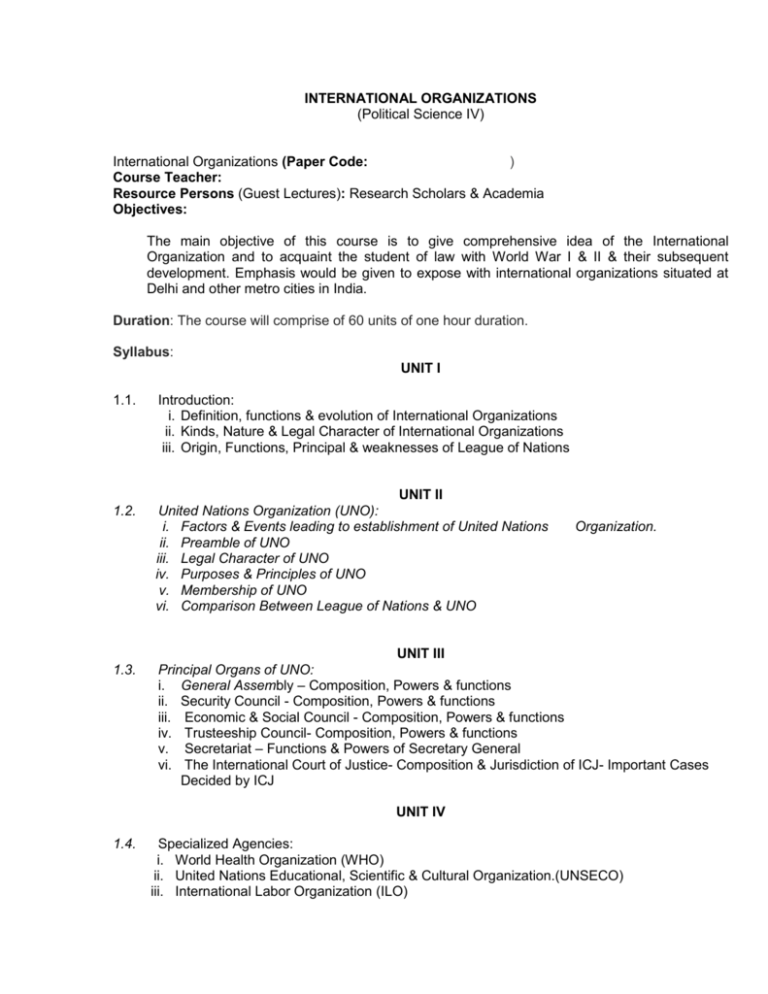
INTERNATIONAL ORGANIZATIONS
(Political Science IV)
International Organizations (Paper Code:
)
Course Teacher:
Resource Persons (Guest Lectures): Research Scholars & Academia
Objectives:
The main objective of this course is to give comprehensive idea of the International
Organization and to acquaint the student of law with World War I & II & their subsequent
development. Emphasis would be given to expose with international organizations situated at
Delhi and other metro cities in India.
Duration: The course will comprise of 60 units of one hour duration.
Syllabus:
UNIT I
1.1.
1.2.
1.3.
Introduction:
i. Definition, functions & evolution of International Organizations
ii. Kinds, Nature & Legal Character of International Organizations
iii. Origin, Functions, Principal & weaknesses of League of Nations
UNIT II
United Nations Organization (UNO):
i. Factors & Events leading to establishment of United Nations
ii. Preamble of UNO
iii. Legal Character of UNO
iv. Purposes & Principles of UNO
v. Membership of UNO
vi. Comparison Between League of Nations & UNO
Organization.
UNIT III
Principal Organs of UNO:
i. General Assembly – Composition, Powers & functions
ii. Security Council - Composition, Powers & functions
iii. Economic & Social Council - Composition, Powers & functions
iv. Trusteeship Council- Composition, Powers & functions
v. Secretariat – Functions & Powers of Secretary General
vi. The International Court of Justice- Composition & Jurisdiction of ICJ- Important Cases
Decided by ICJ
UNIT IV
1.4.
Specialized Agencies:
i. World Health Organization (WHO)
ii. United Nations Educational, Scientific & Cultural Organization.(UNSECO)
iii. International Labor Organization (ILO)
iv.
v.
vi.
vii.
viii.
ix.
x.
xi.
xii.
xiii.
World Bank (WB) or IBRD
International Monetary Fund (IMF)
World Trade Organization (WTO)
World Intellectual Property Organization (WIPO)
Food & Agriculture Organization (FAO)
International Civil Aviation Organization (ICAO)
World Meteorological Organization (WMO)
International Maritime Organization (IMO)
International Telecommunication Union (ITU)
United Nations Industrial Development Organization (UNIDO)
Required Reading:
i.
Political Science (2012). Himalaya Publishing House: B.K. Gokhale.
ii.
Principles of Political Science, S. Chand & Company Ltd. Dr. Anup Chand Kapur (S. Chand)
iii.
Political Ideas & Ideologies, O.P. Gauba, London: Macmillan
Additional Reading
i.
Theory: An Introduction. New Delhi: Pearson Longman, pp. 2-16.
ii.
Bellamy, R. (1993) ‘Introduction: The Demise and Rise of Political Theory’, in Bellamy, R.
(ed.)
iii.
Theories and Concepts of Politics. New York: Manchester University Press, pp. 1-14.
iv.
Glaser, D. (1995) ‘Normative Theory’, in Marsh, D. and Stoker, G. (eds.) Theory and Methods
in
v.
Political Science. London: Macmillan, pp. 21-40.
vi.
Sanders, D. (1995) ‘Behavioral Analysis’, in Marsh, D. and Stoker, G. (eds.) Theory and
Methods in
vii.
Political Science. London: Macmillan, pp. 58-75.
viii.
Chapman, J. (1995) ‘The Feminist Perspective’, in Marsh, D. and Stoker, G. (eds.) Theory
and Methods
ix.
in Political Science. London: Macmillan, pp. 94-114.
x.
Bharghava, R, ‘Why Do We Need Political Theory’, in Bhargava, R. and Acharya, A. (eds.)
Political
xi.
Theory: An Introduction. New Delhi: Pearson Longman, pp. 17-36.
xii.
Bannett, J. (2004) ‘Postmodern Approach to Political Theory’, in Kukathas, Ch. and Gaus, G.
F. (eds.)
xiii.
Handbook of Political Theory. New Delhi: Sage, pp. 46-54.9
xiv.
Vincent, A. (2004) The Nature of Political Theory. New York: Oxford University Press, 2004,
pp. 19-80.
xv.
Srinivasan, J. (2008) ‘Democracy’, in Bhargava, R. and Acharya, A. (eds) Political Theory: An
xvi.
Introduction. New Delhi: Pearson Longman, pp. 106-128.
xvii.
Owen, D. (2003) ‘Democracy’, in Bellamy, R. and Mason, A. (eds.). Political Concepts.
Manchester
xviii.
and New York: Manchester University Press, pp. 105-117.
xix.
Christiano, Th. (2008) ‘Democracy’, in Mckinnon, C. (ed.) Issues in Political Theory, New
York:
xx.
Oxford University Press, pp. 80-96.
xxi.
Arblaster, A. (1994) Democracy. (2nd Edition). Buckingham: Open University Press.
xxii.
Roy, A. ‘Citizenship’, in Bhargava, R. and Acharya, A. (eds.) Political Theory: An Introduction.
New
xxiii.
Delhi: Pearson Longman, pp. 130-146.
xxiv.
Brighouse, H. (2008) ‘Citizenship’, in Mckinnon, C. (ed.) Issues in Political Theory, New York:
xxv.
Oxford University Press, pp. 241-258.
Evaluation components
Maximum marks allotted for the paper is 100 out of which 50% is allotted for semester
end university examination, and 50% for continuous evaluation by the concerned course teachers.
DELETE:
International Organizations
Chapter-I
1. Definition , functions & evolution of International Organizations.
2. Kinds of International Organizations.
3. Nature & Legal Character of International Organizations.
Chapter-II
The League of Nations.
1. Origin & Principal organs of League of Nations
2. Functions, weaknesses & defects of League of Nations.
3. Dissolutions of League of Nations.
Chapter-III
United Nations Organization (UNO)
1. Factors & Events leading to establishment of United Nations
2. Preamble of UNO
3. Legal Character of UNO
4. Purposes & Principles of UNO
5. Membership of UNO
6. Comparison Between League of Nations & UNO
Chapter-IV
Principal Organs of UNO
1.The General Assembly – Composition, Powers & functions
2. The Security Council - Composition, Powers & functions
3. The Economic & Social Council - Composition, Powers & functions
Organization.
4. The Trusteeship Council- Composition, Powers & functions
5. The Secretariat – Functions & Powers of Secretary General
6. The International Court of Justice- Composition & Jurisdiction of ICJ- Important Cases Decided by
ICJ
Chapter V
Specialized Agencies
1. World Health Organization (WHO)
2. United Nations Educational, Scientific & Cultural Organization.(UNSECO)
3. International Labor Organization (ILO)
4. World Bank (WB) or IBRD
5. International Monetary Fund (IMF)
6. World Trade Organization(WTO)
7. World Intellectual Property Organization(WIPO)
8. Food & Agriculture Organization (FAO)
9. International Civil Aviation Organization (ICAO)
10.World Meteorological Organization (WMO)
11. International Maritime Organization (IMO)
12. International Telecommunication Union (ITU)
13. United Nations Industrial Development Organization (UNIDO)
This course is divided into two sections. Section A introduces the students to the idea of political
theory, its history and approaches, and an assessment of its critical and contemporary trends.
Section B is designed to reconcile political theory and practice through reflections on the ideas and
practices related to democracy. Traditions of Political Theory: Liberal, Marxist, Anarchist and
Conservative Approaches to Political Theory: Normative, Historical and Empirical Critical and
Contemporary Perspectives in Political Theory: Feminist and Postmodern.
The Grammar of Democracy:
Democracy:
1. The history of an idea
2. Procedural Democracy and its critique
3. Deliberative Democracy
4. Participation and Representation


